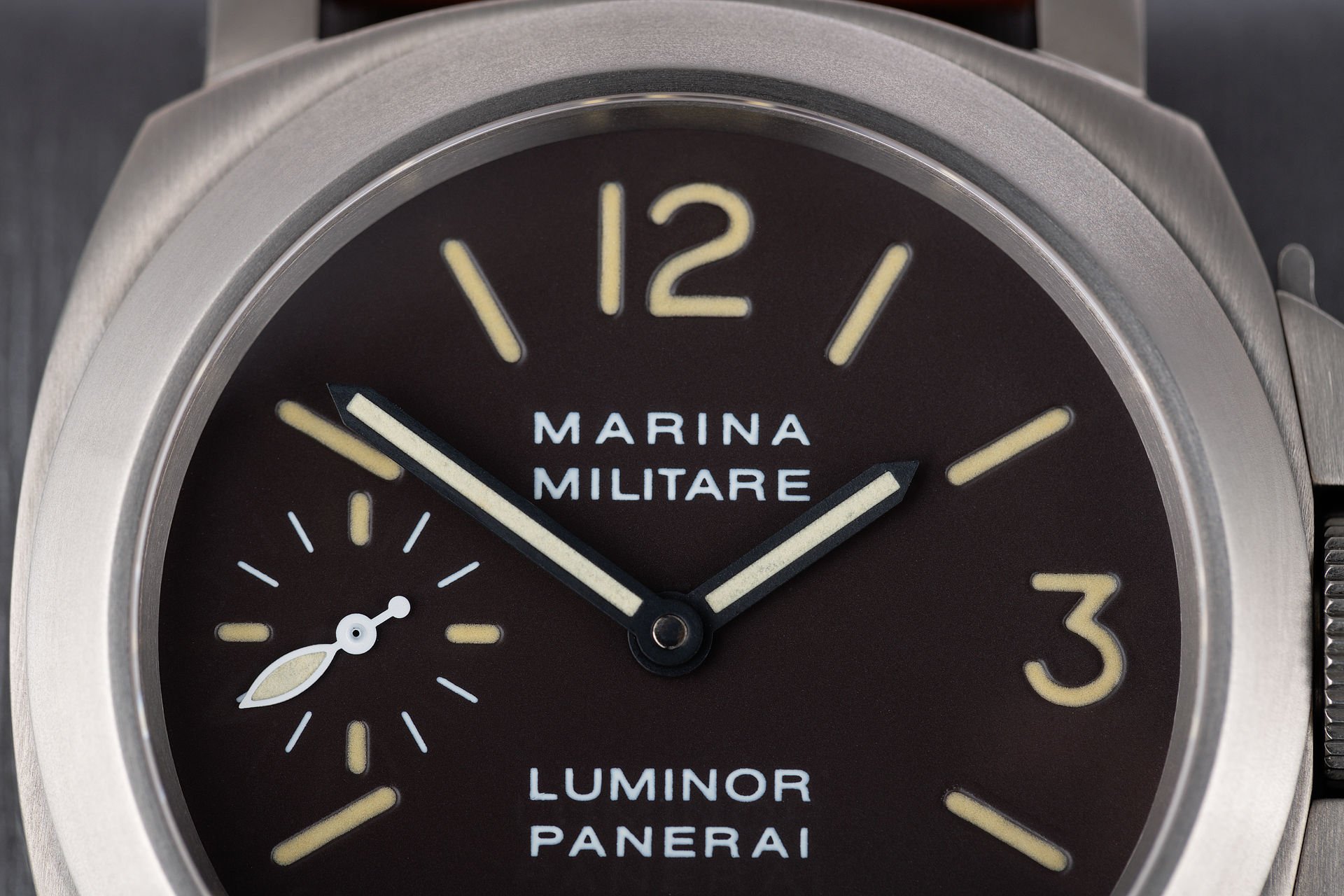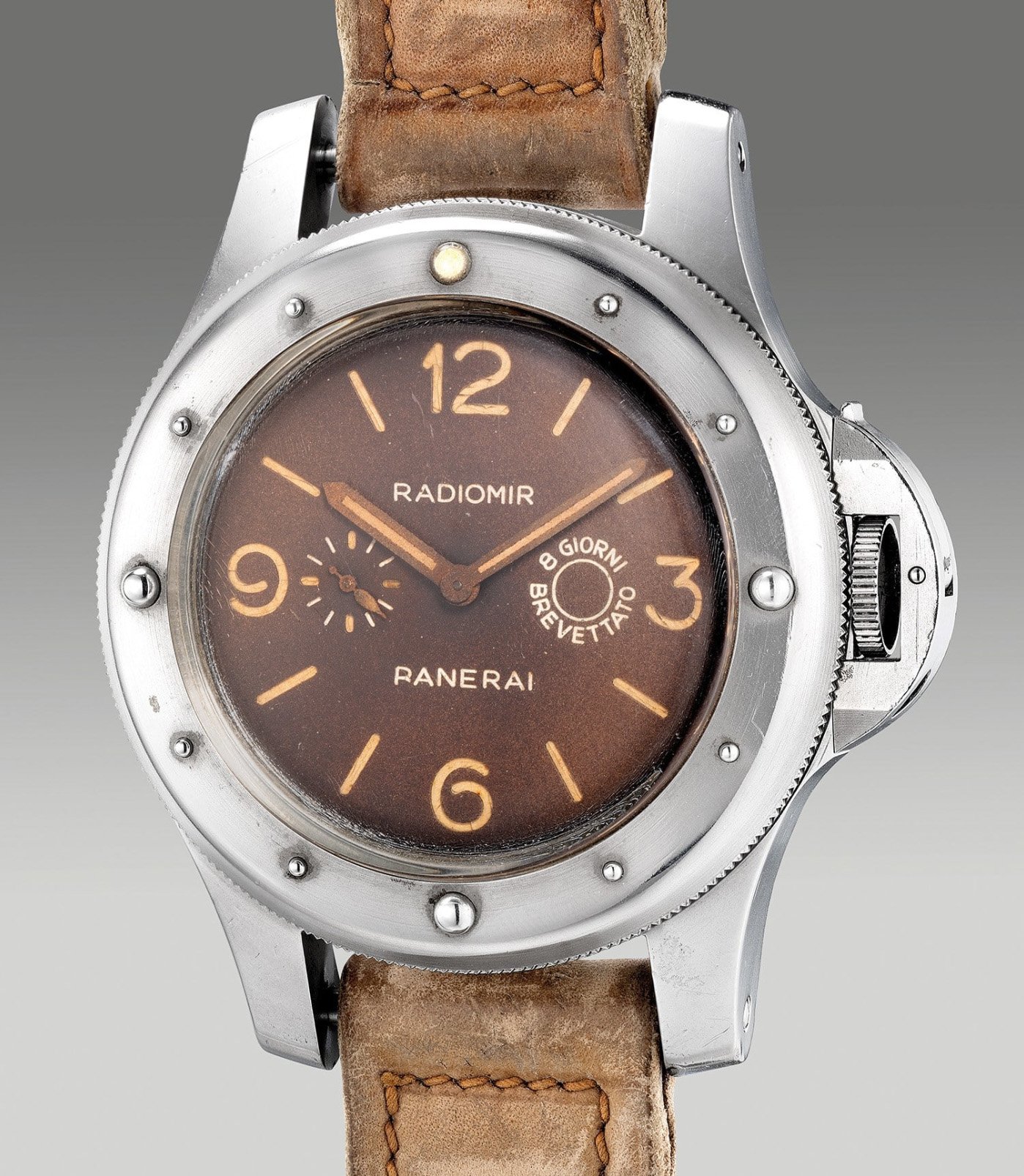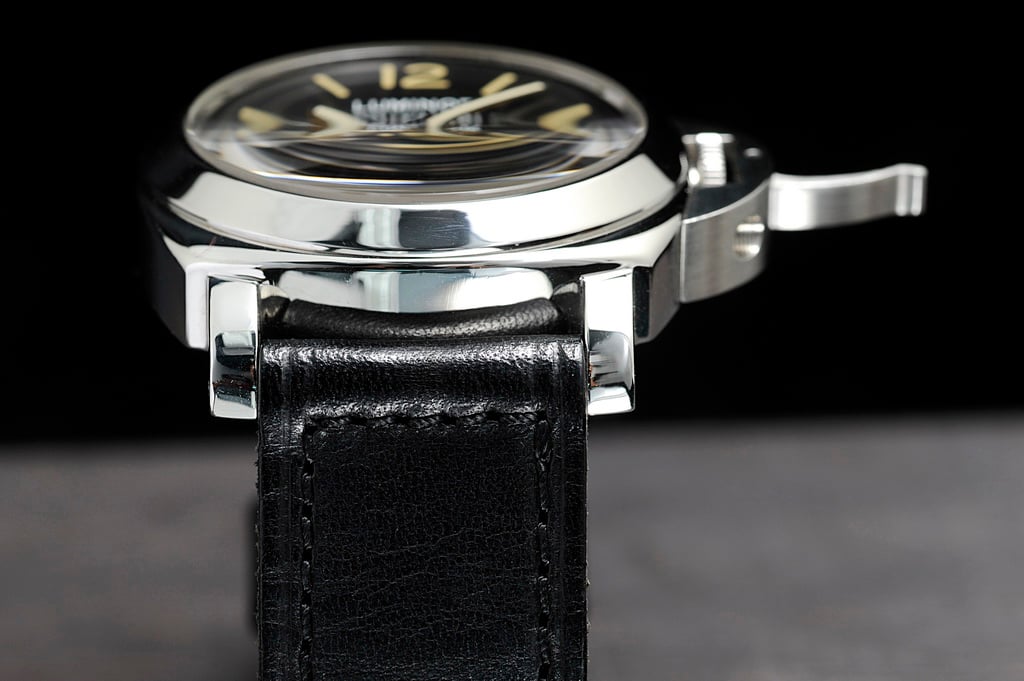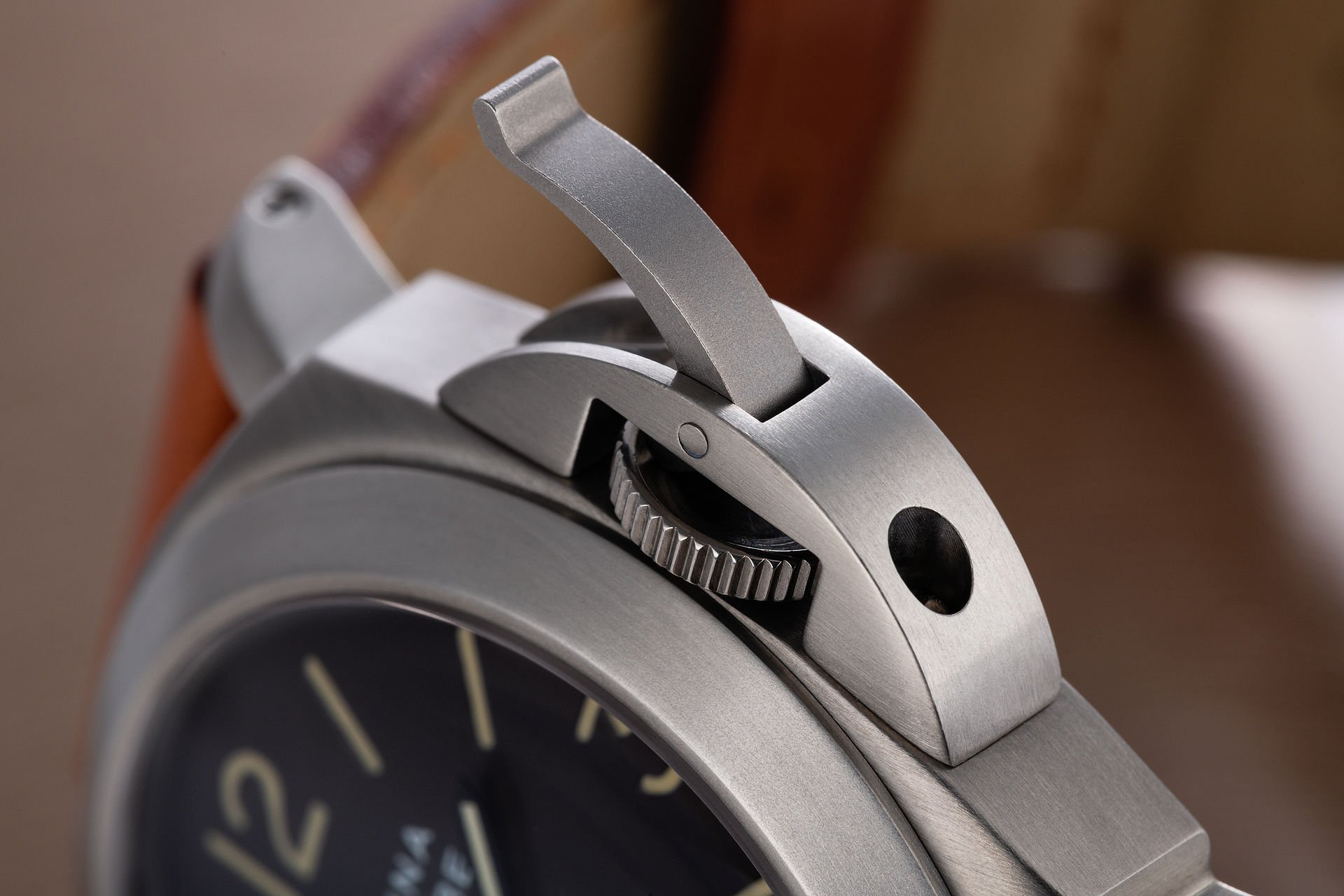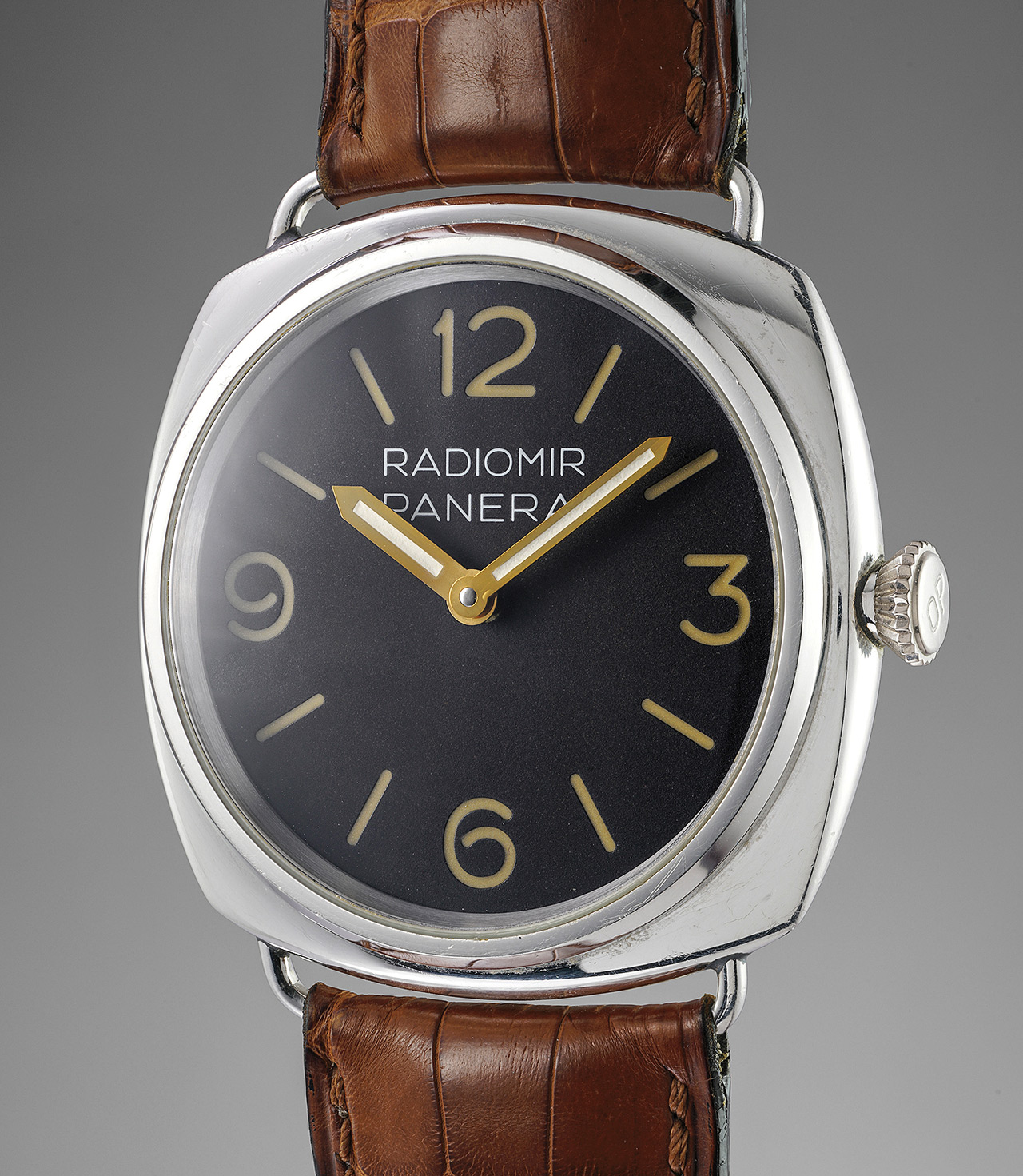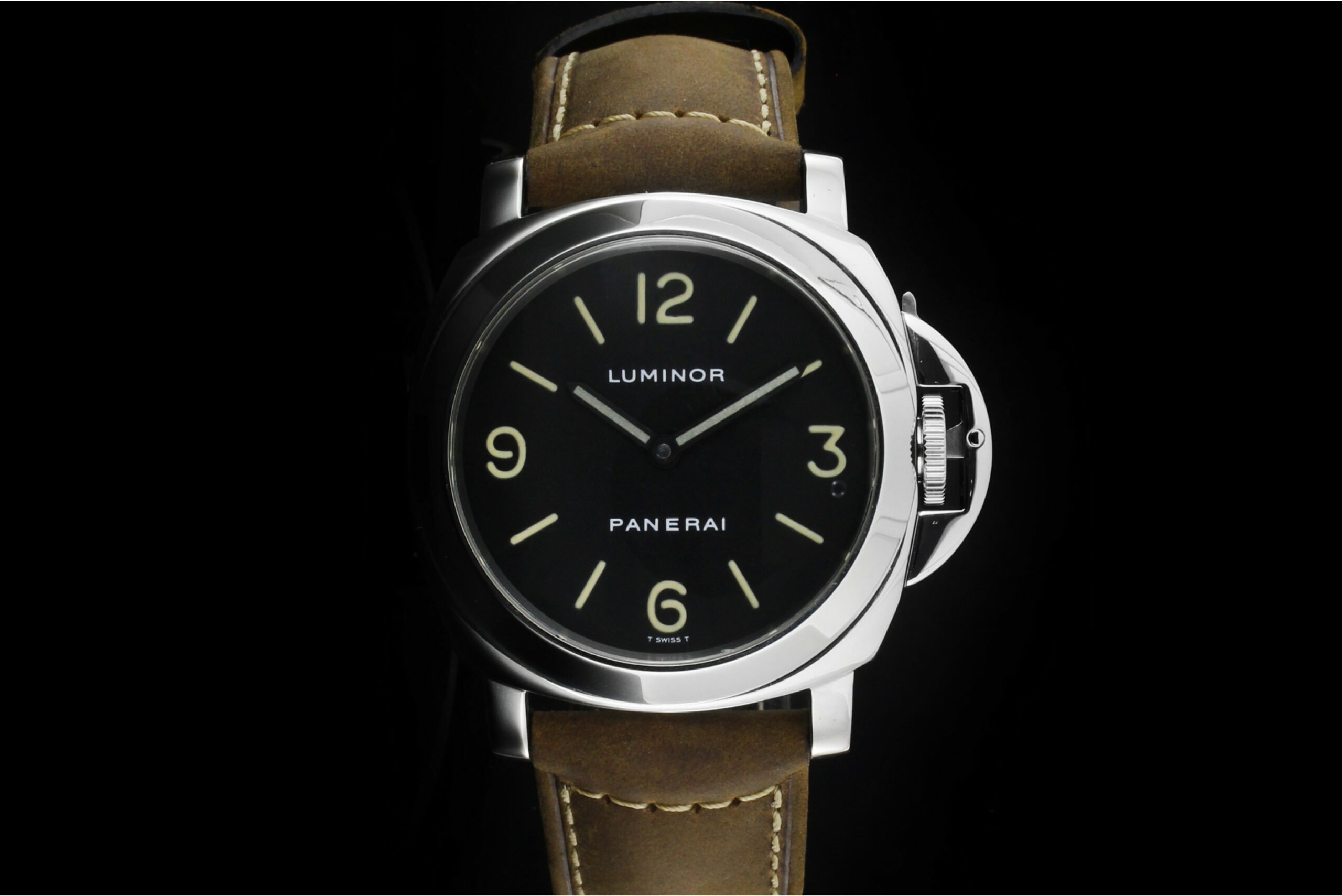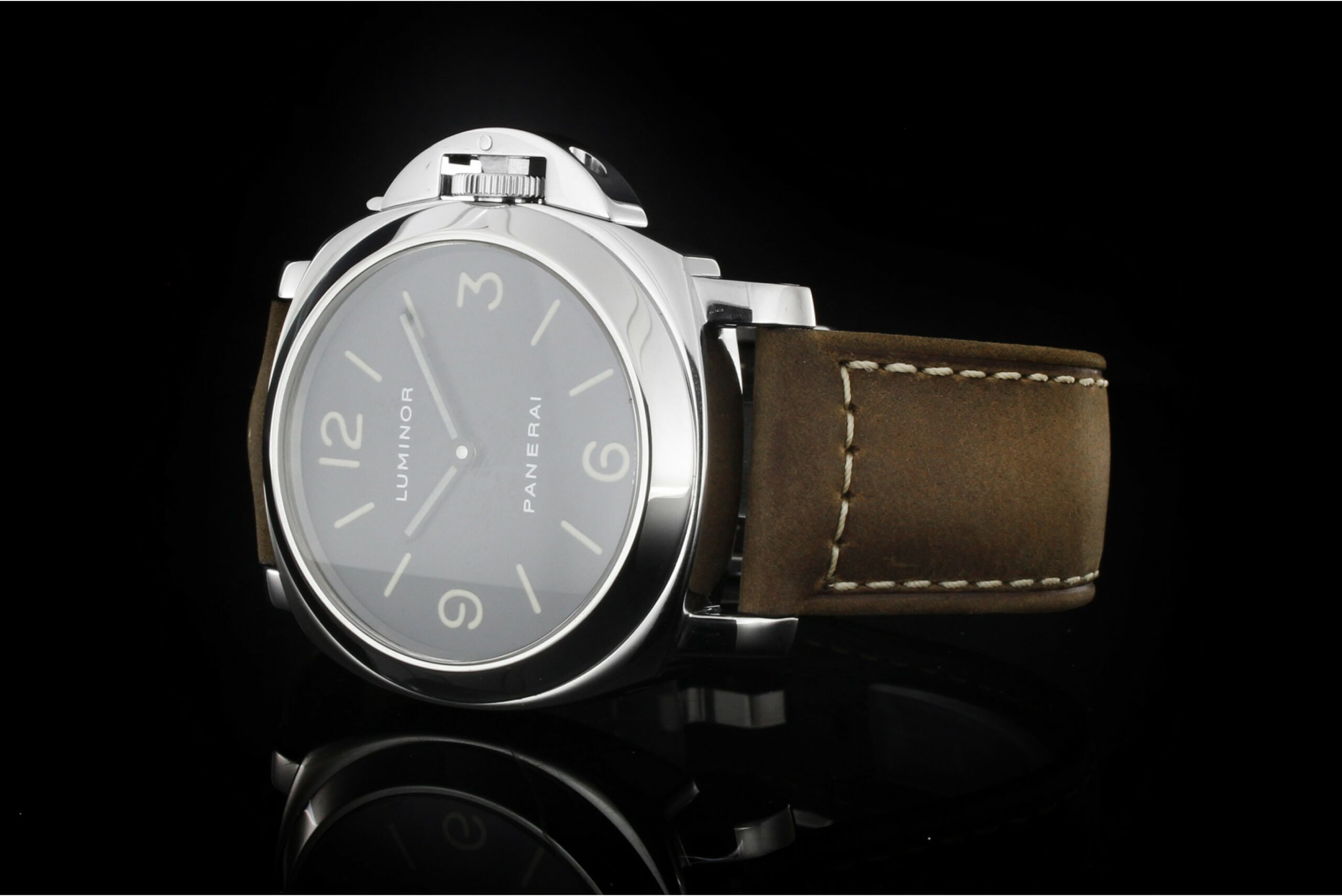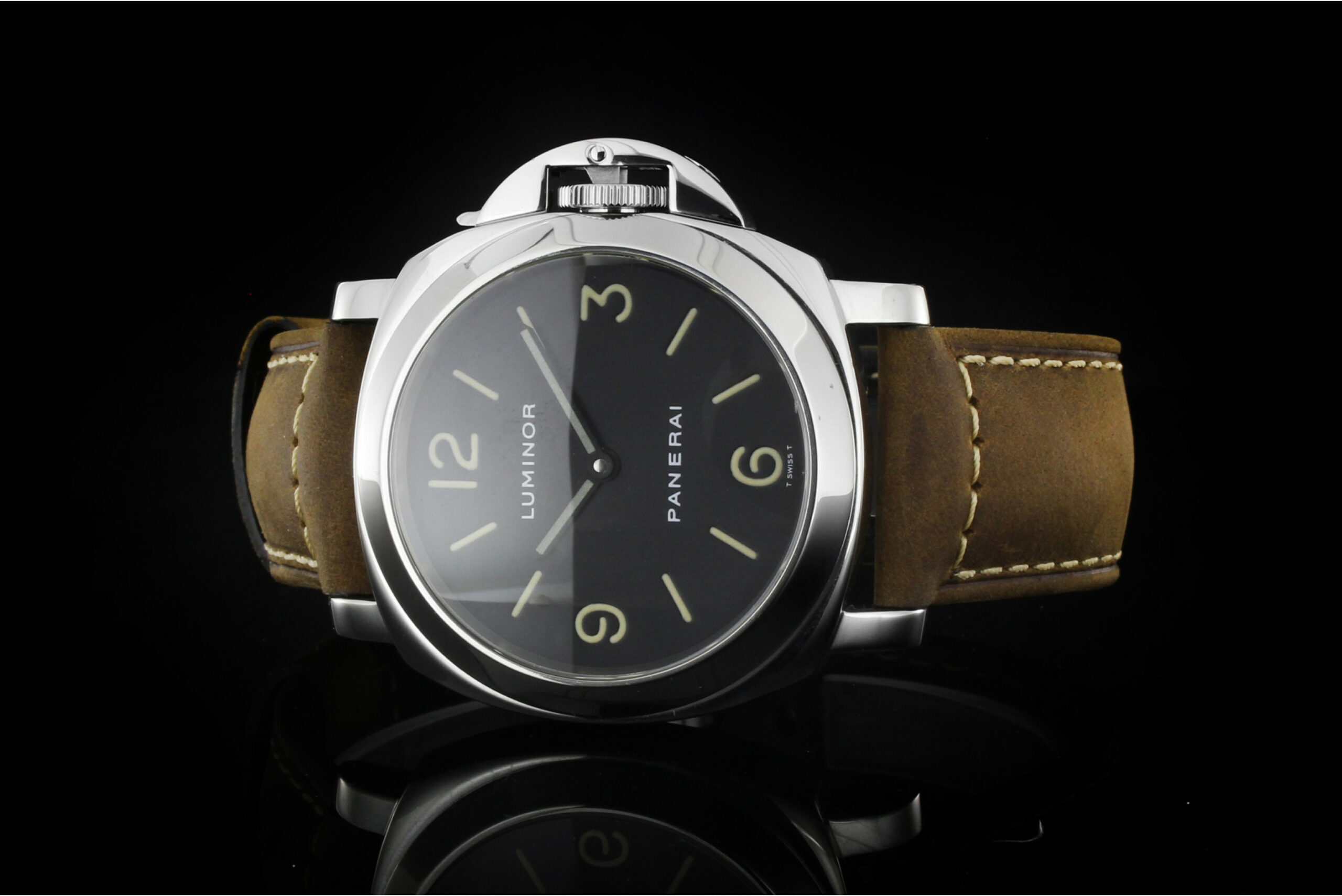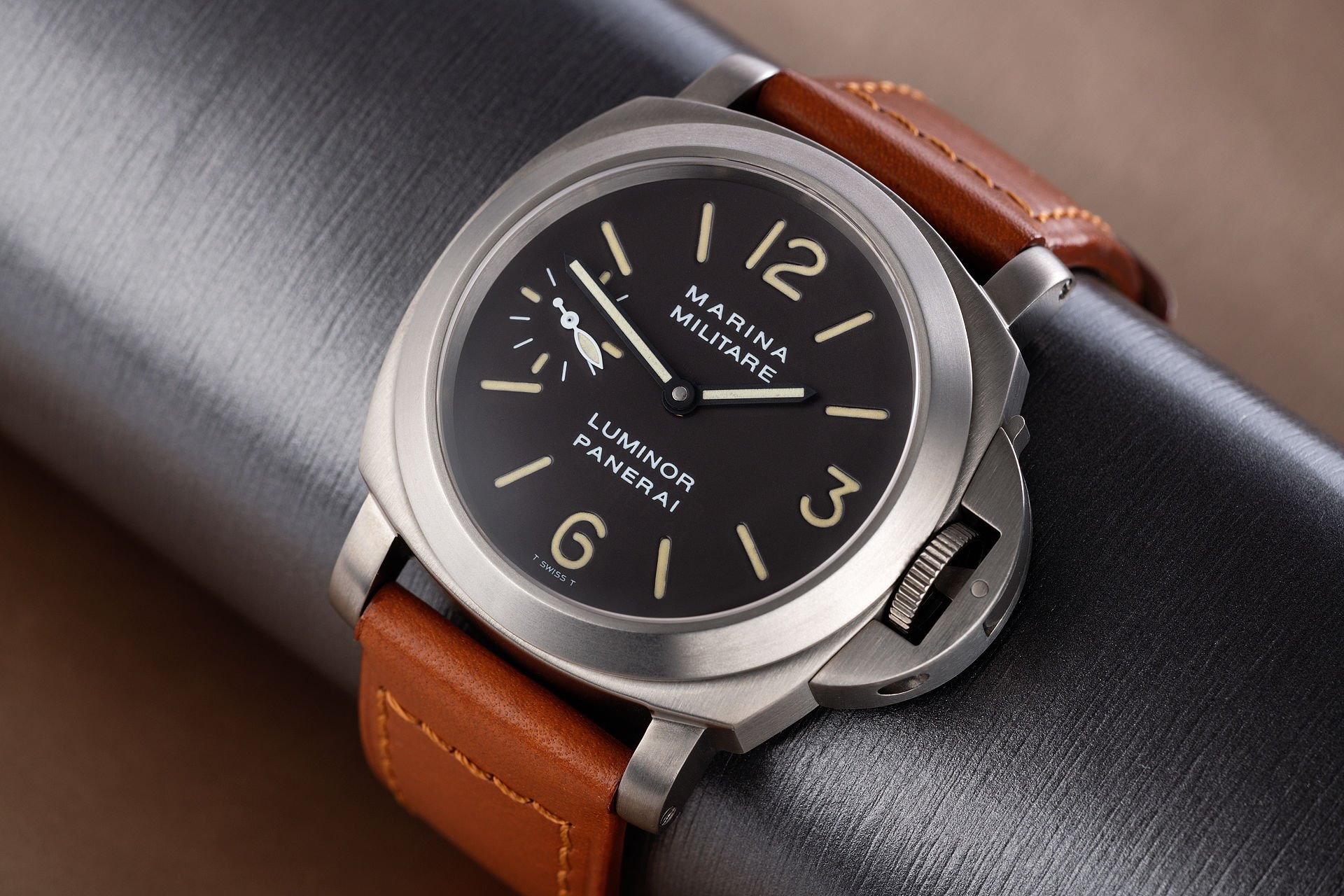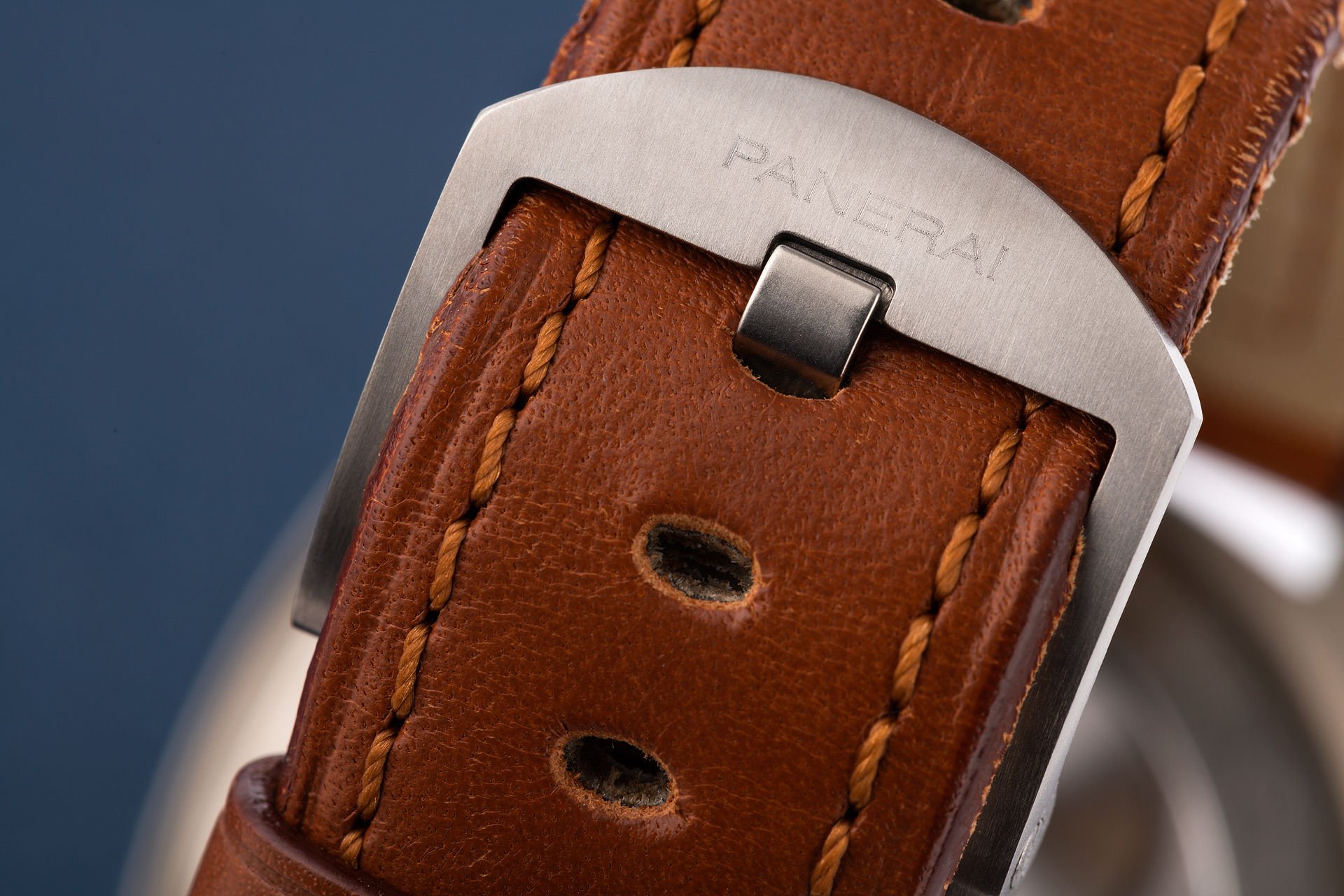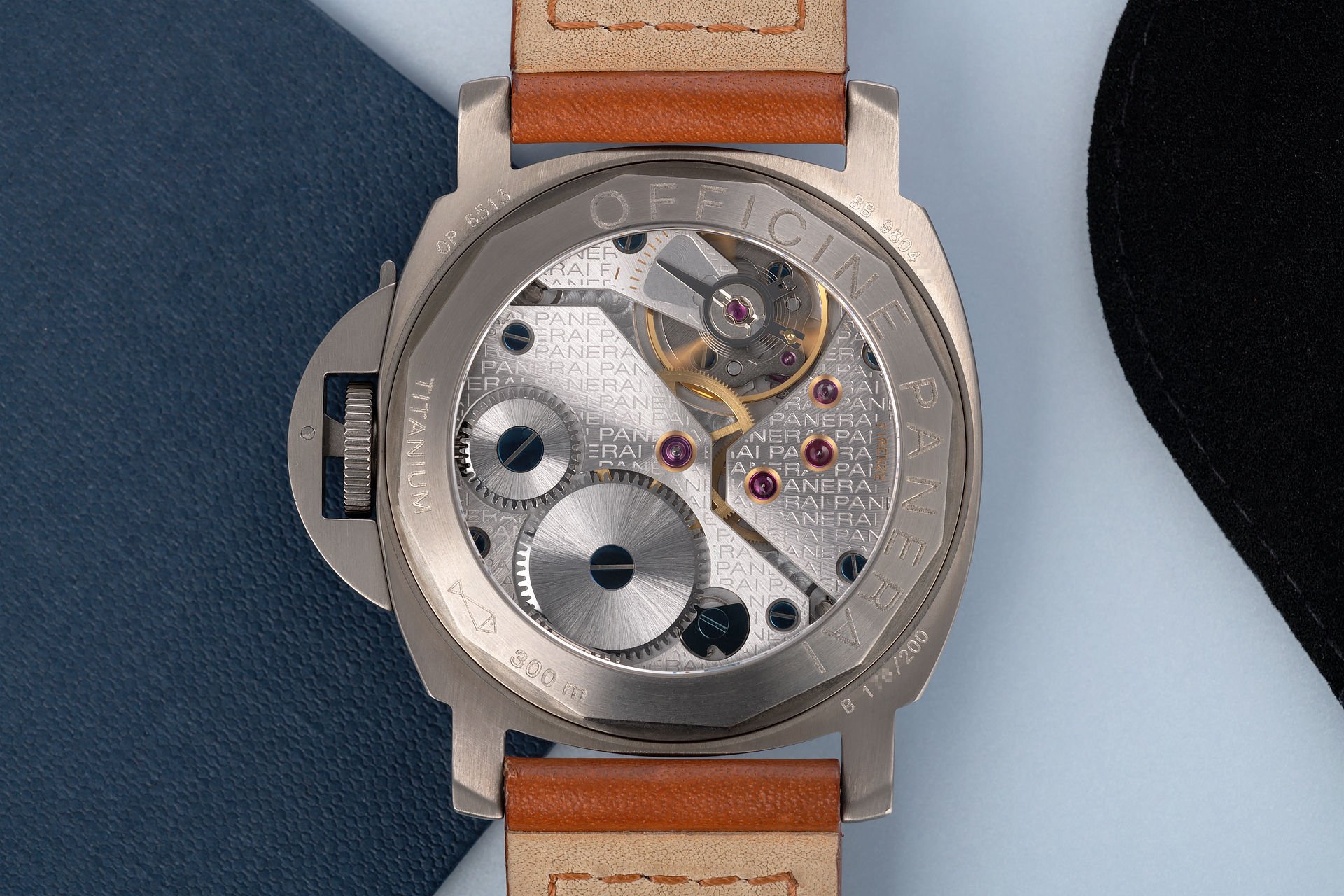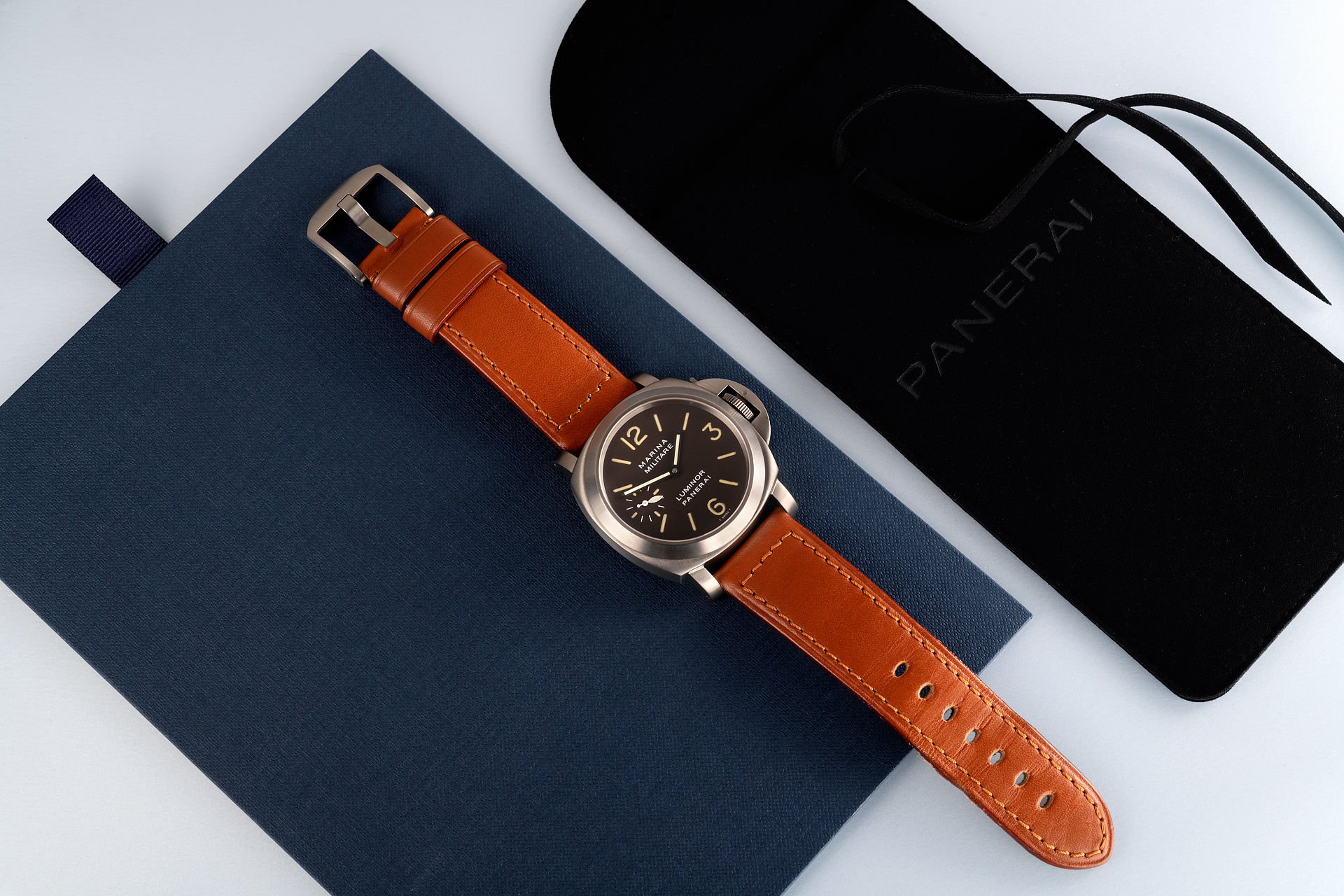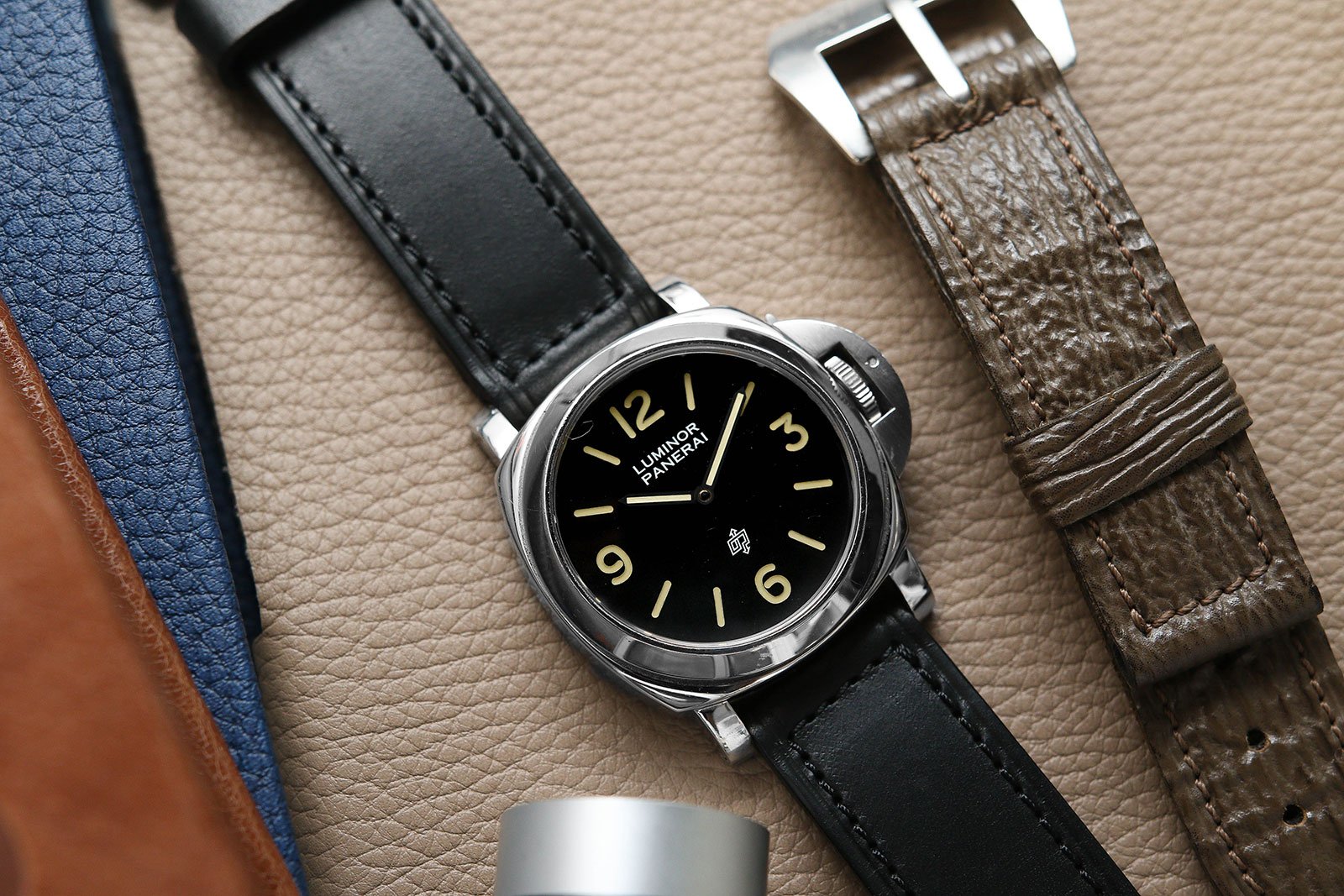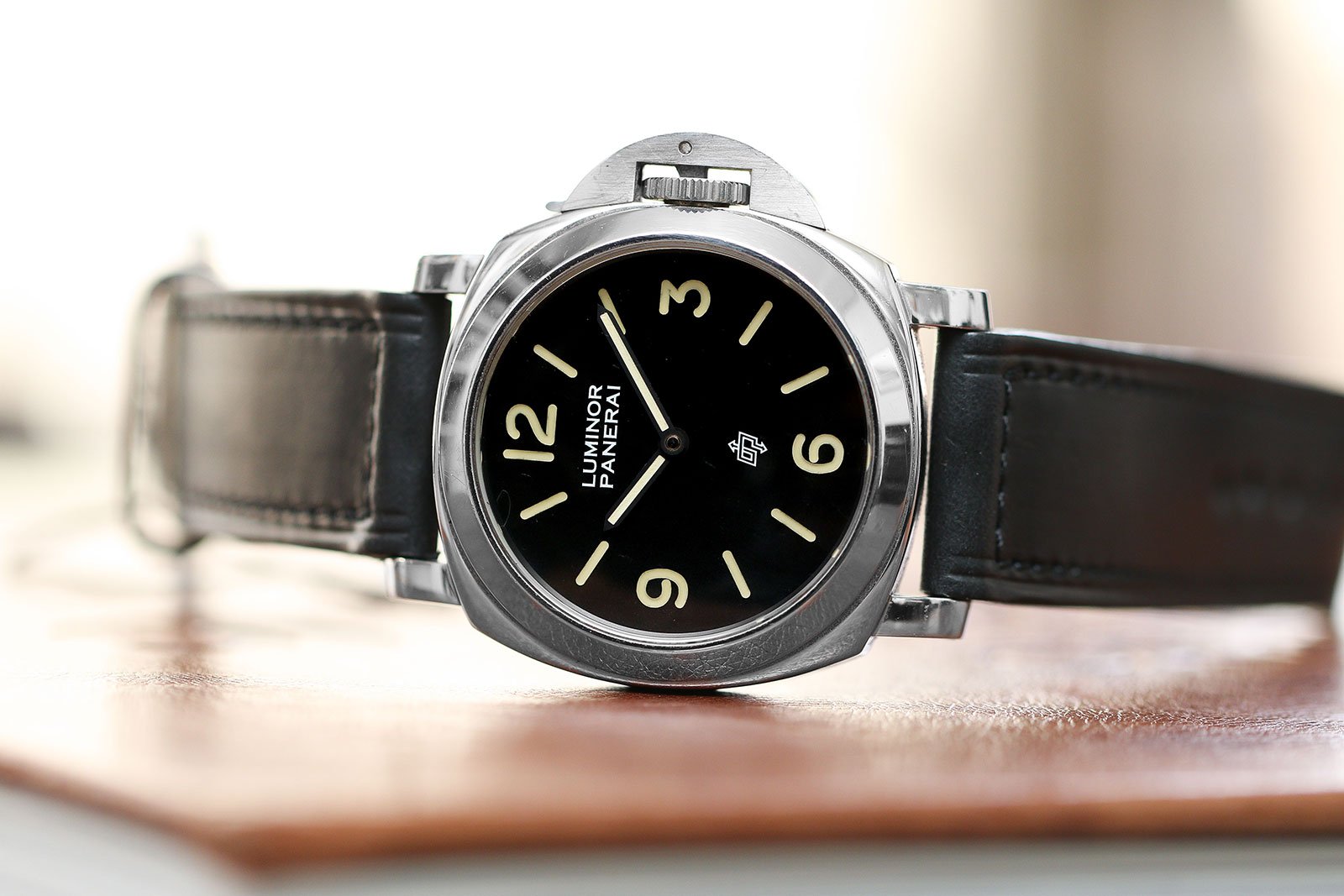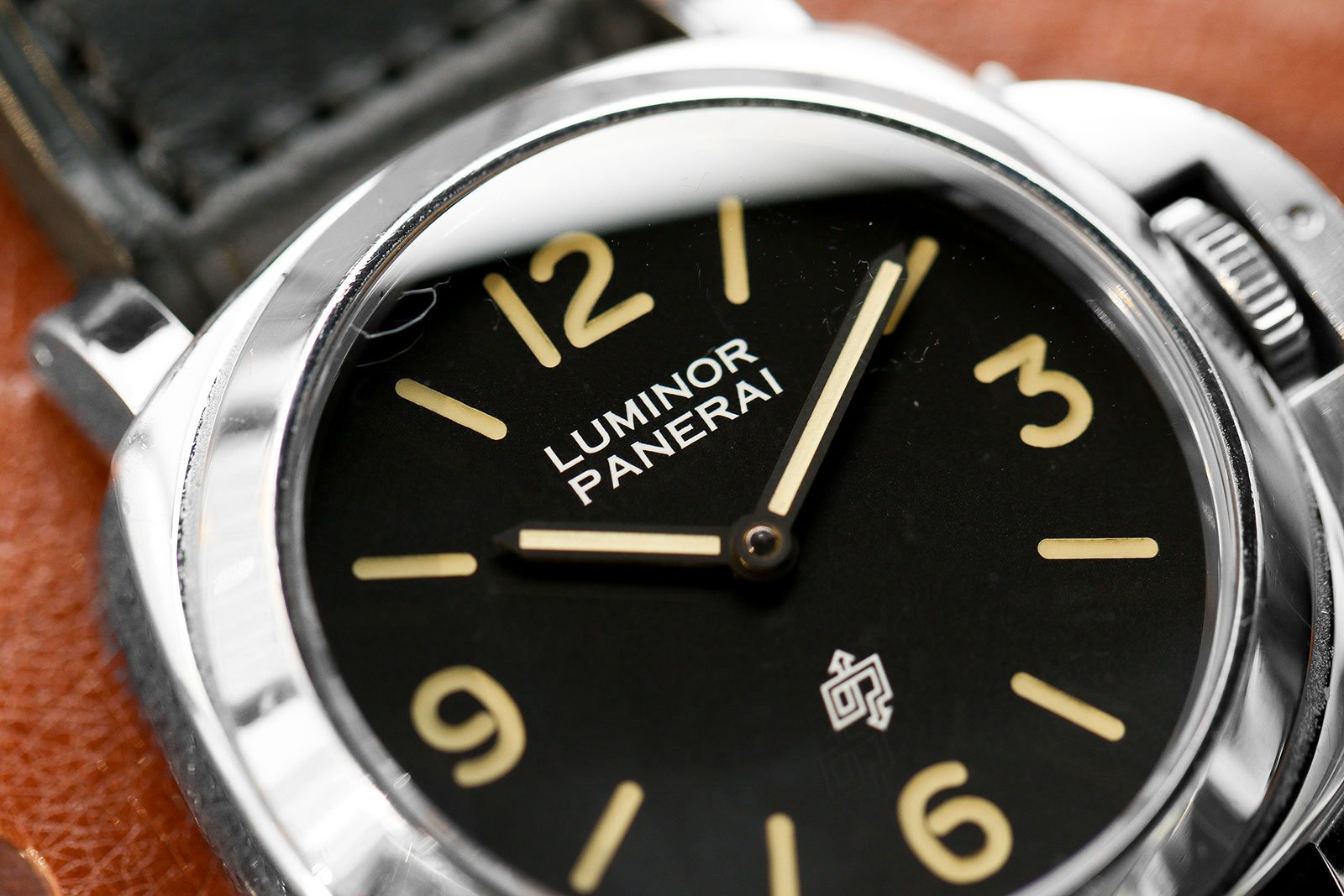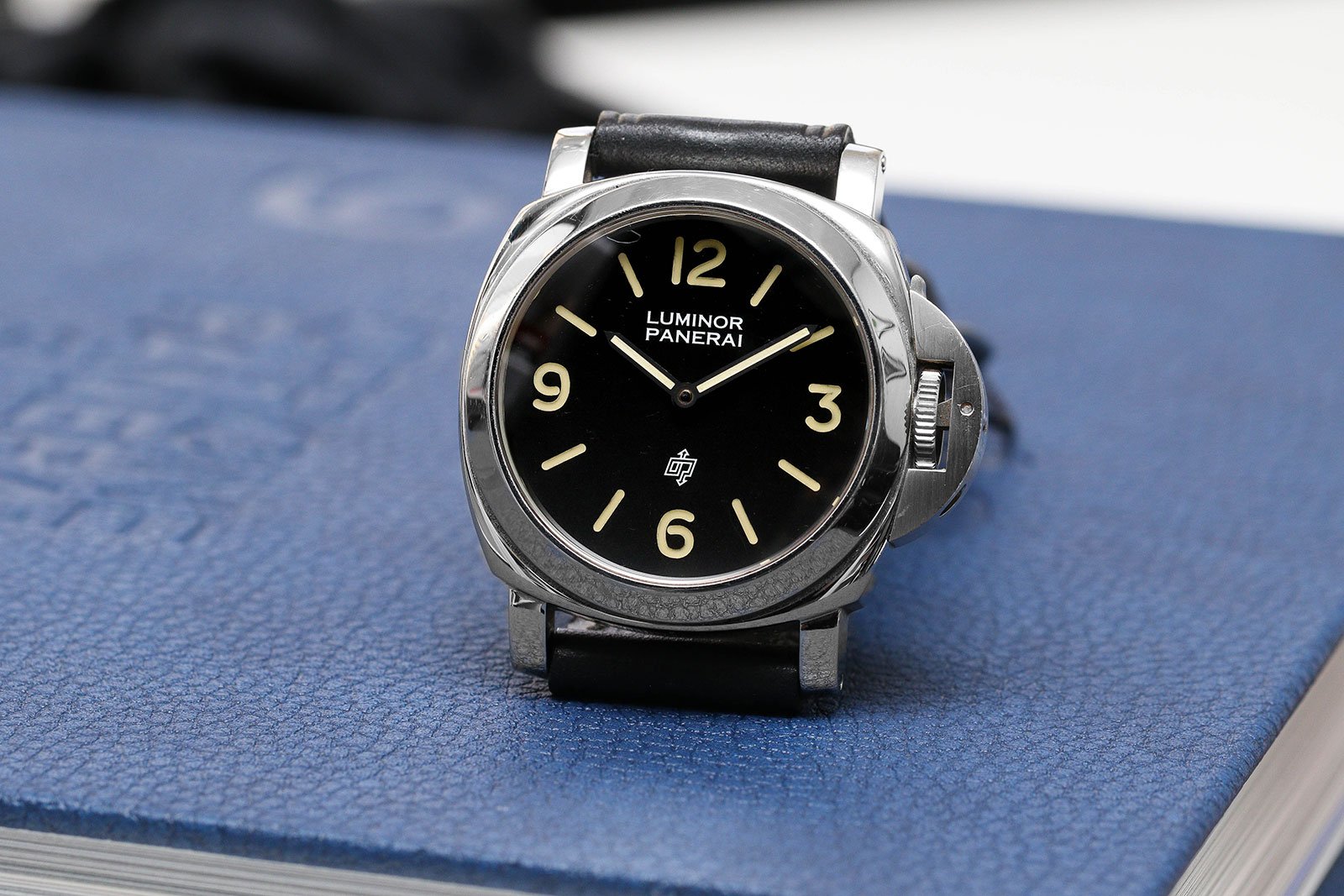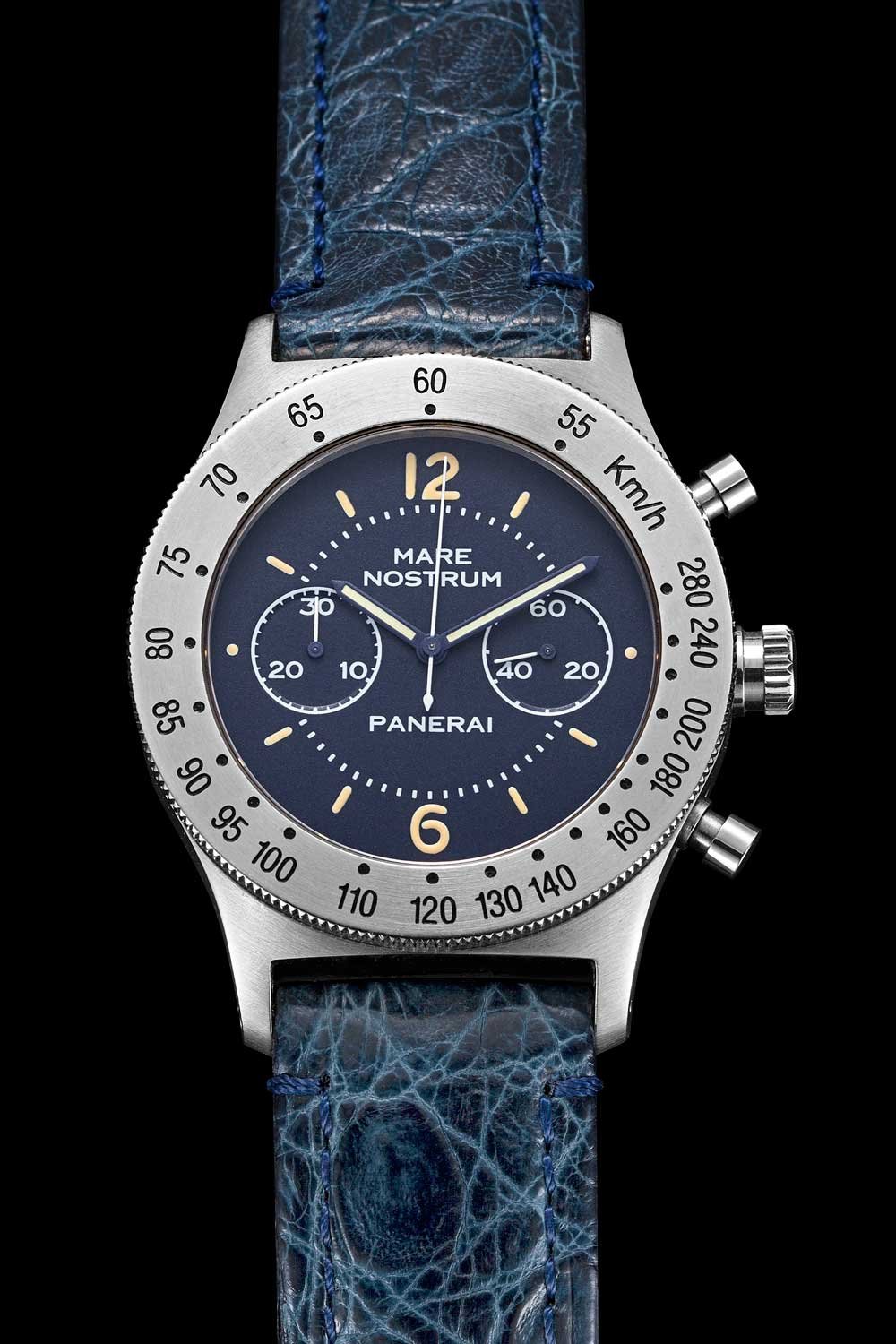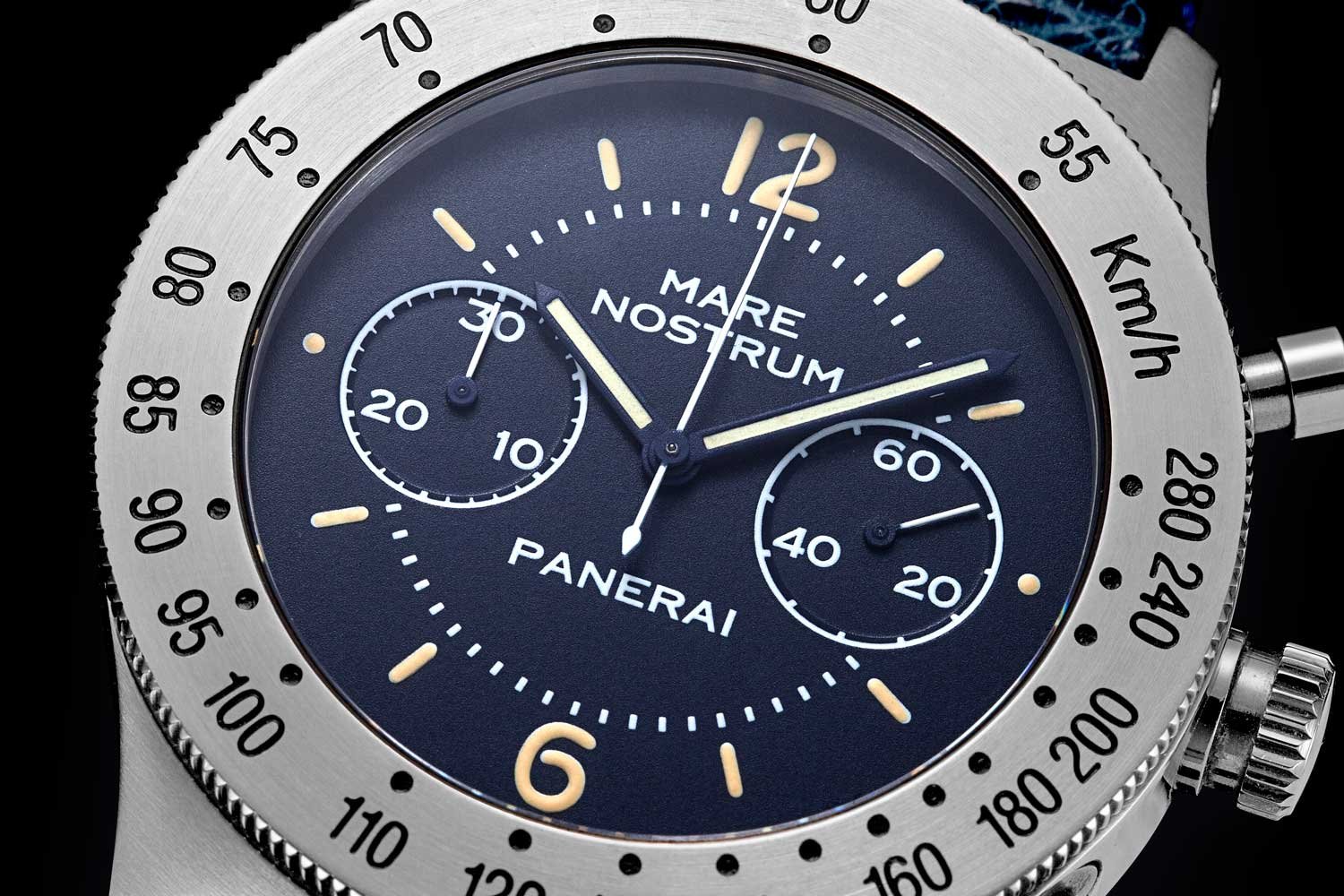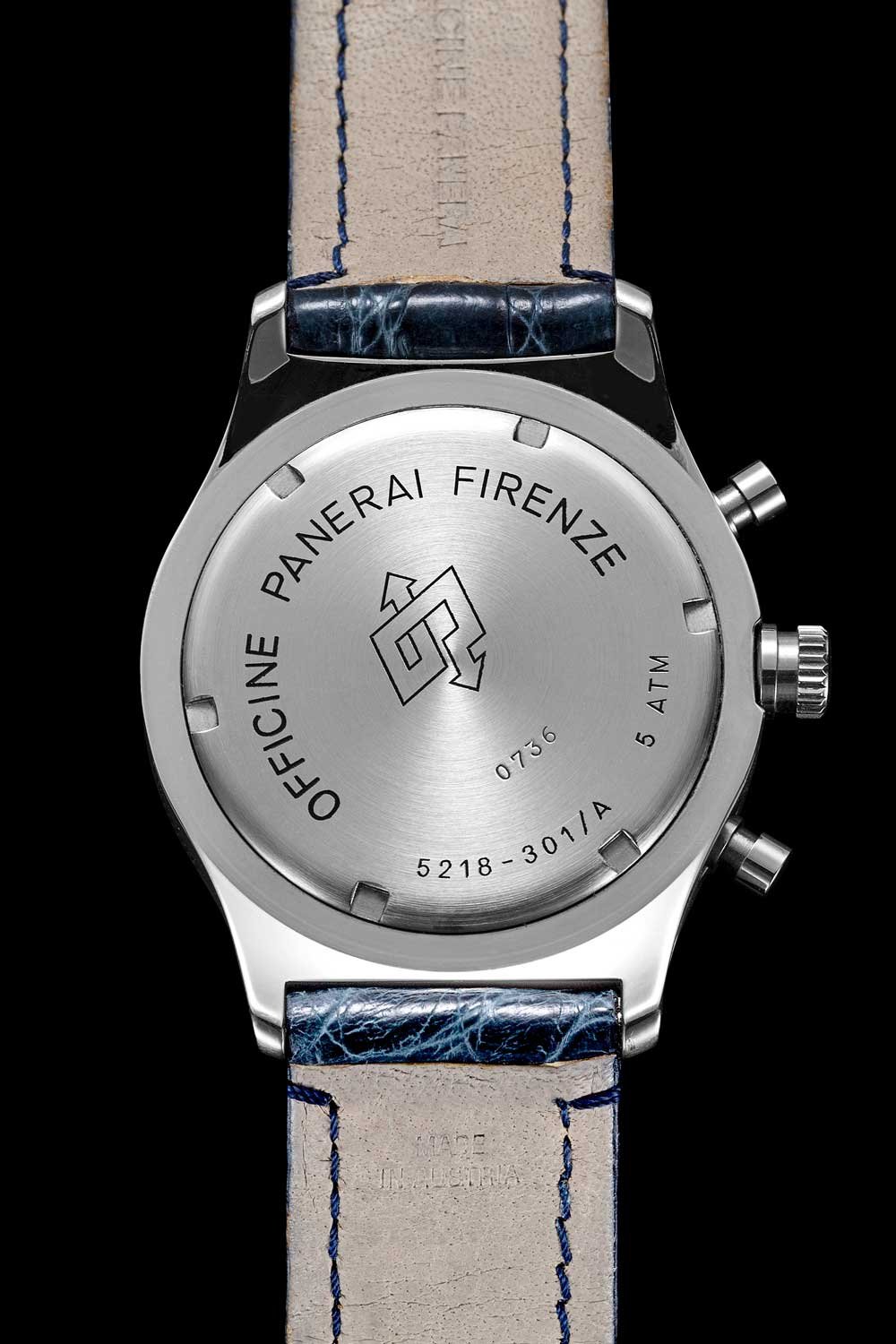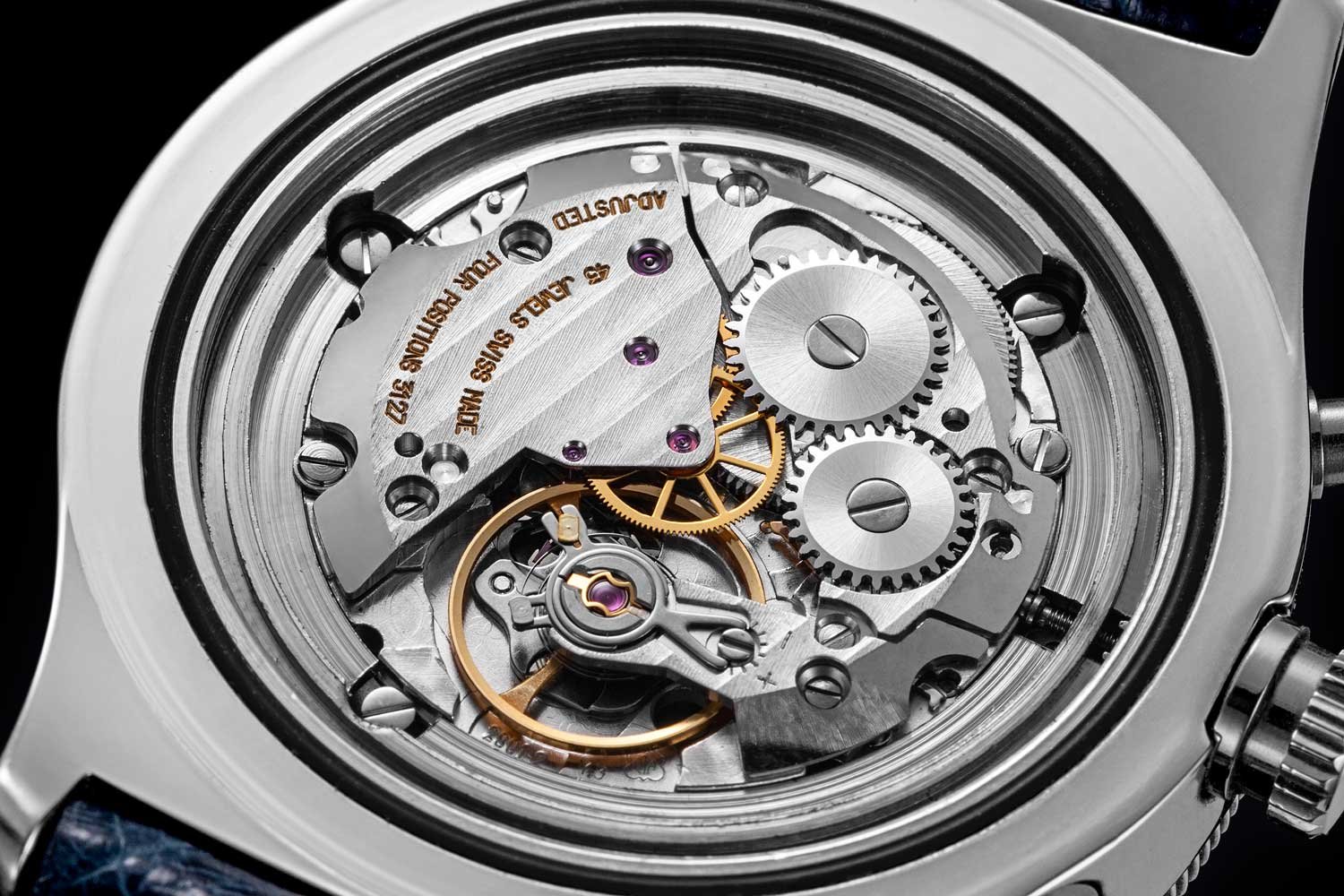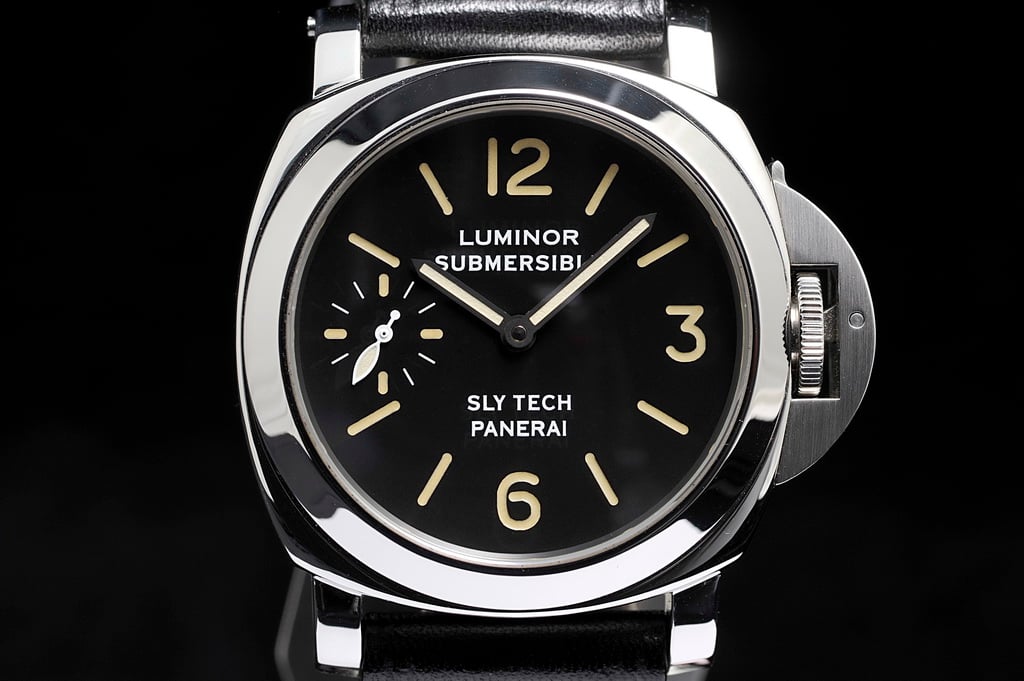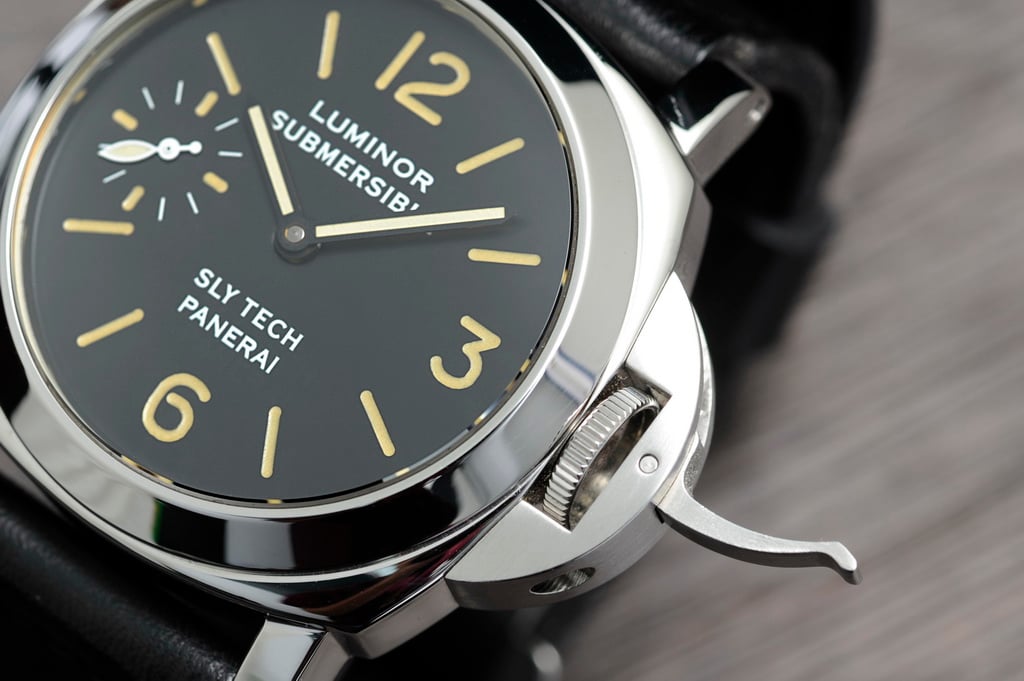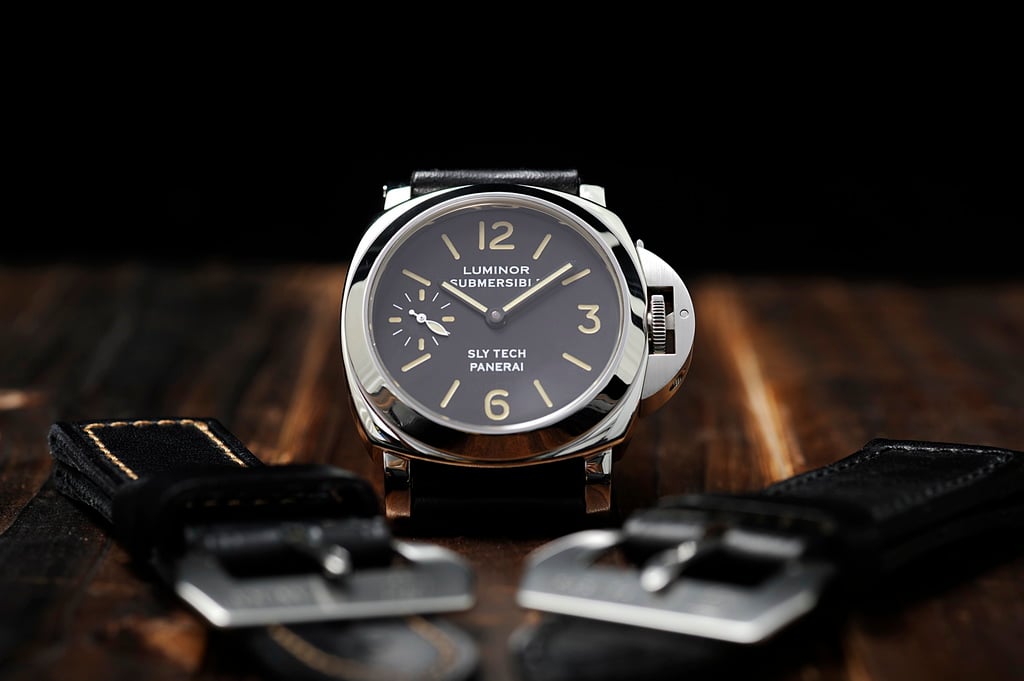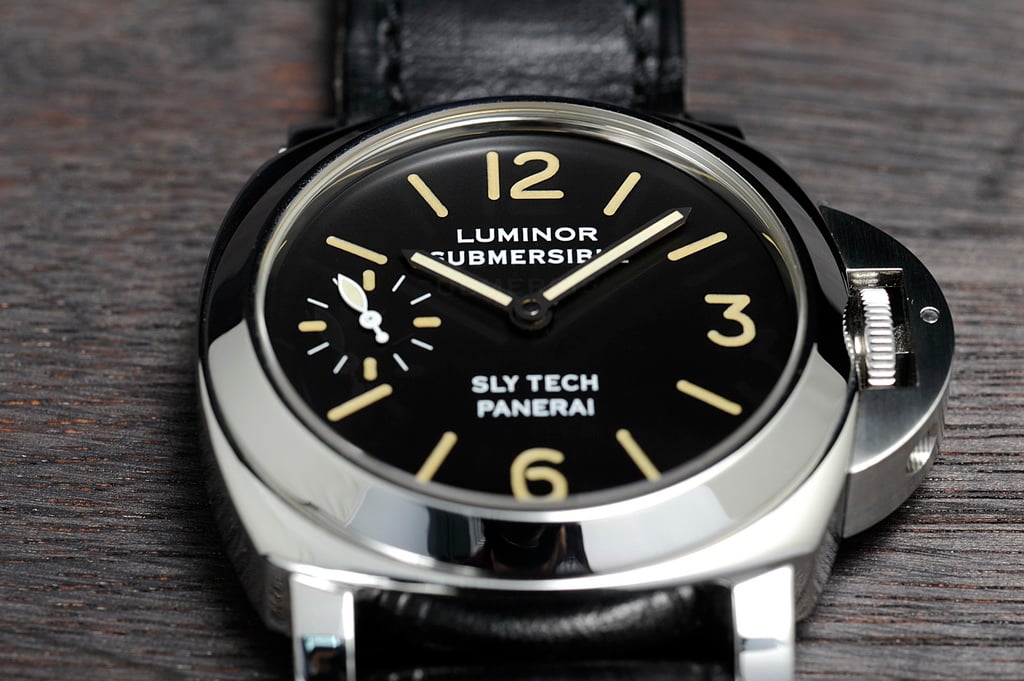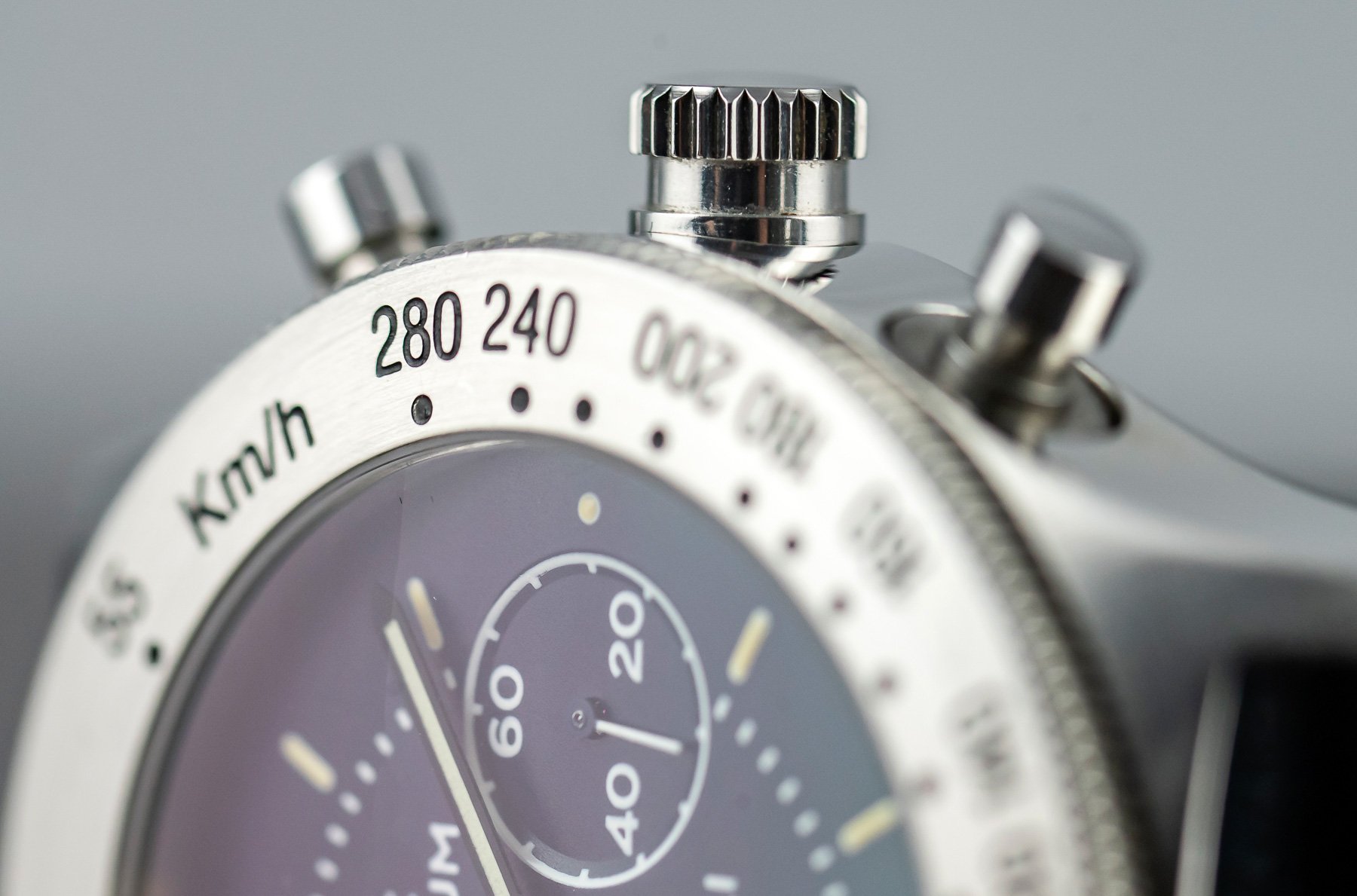Buying Guide: The Best Panerai Watches From The 1990s
We like to talk about vintage watches a lot within the Fratello team. Though most of what we write about is primarily focused on the most recent releases and developments, for many of us, a lot of the fun can be found in the sometimes weird and often wonderful world of vintage watches. It’s a world full of history, remarkable watches, incredible stories, and quirky details. It inspired us to come up with a series of articles focusing on the best watches per decade from a select group of brands. Some of them are priceless, and some of them are still affordable. In this installment, we will take a look at the best Panerai watches from the 1990s.
This week we will continue our journey through watch history to find the best watches from the 1990s. As I have mentioned in the previous articles discussing the best watches from the 1980s, mechanical watches slowly started making a comeback in that decade. By the time the 1990s began, quartz was still dominating the watch industry. But you could slowly see the two finding space next to each other.
With the gradual rise in the popularity of mechanical watches, we also saw a shift in perception. Mechanical watches became a luxury statement produced by prestigious brands with centuries of watchmaking history. It set them apart from mass-produced, cheap quartz watches. This luxury status was further backed up by a renewed interest in watches with classical complications. Combining the rich history of watchmaking with technical masterpieces set mechanical watches apart from the fast world of quartz watches once and for all.
Panerai over the decades
Before Panerai was introduced to a wider audience in 1993, the brand was known especially amongst enthusiasts of diving watches. Until that point, the brand’s rich history was shaped by its role as an official supplier of instruments to the Royal Italian Navy. It’s a history that started when Giovanni Panerai opened his little watchmaker’s shop in Florence, Italy in 1860. In the early 1900s, with Giovanni’s grandson Guido Panerai at the helm, Panerai started producing watches instruments for the Italian Navy, the Regia Marina. The brand also supplied watches to the force’s combat divers.
The Radiomir name
In 1916 Panerai patented the name Radiomir. In order to meet the military requirements of the Italian Royal Navy, Panerai together with Lieutenant Commander Carlo Ronconi developed a radium-based powder that the name refers to. As a result, the dials of the instruments improved massively in readability due to better luminescence. Panerai introduced the first prototype watch with ref. 2533 as part of the collaboration with the Italian Navy in 1936. It was followed by the iconic ref. 3646. A large 47mm watch with a cushion-shaped steel case that we now know as the Radiomir.
Almost all Panerai watches back then were designed and manufactured by Rolex, using pocket watch movements made by Swiss manufacturer Cortébert. In the years after Panerai developed an updated Radiomir featuring the sandwich dial that the brand is known for nowadays. Panerai also worked on improving the water-resistance of the Radiomir by introducing it with a case made from one single block of steel in 1953.
The Luminor name
After World War II was over, in 1949 Panerai patented the name Luminor. Giuseppe Panerai recognized that the link with radioactivity was potentially going to be an issue with all the post-war developments in military and civil atomic technologies. It’s why Giuseppe Panerai decided that luminous materials should have a more neutral name and why the name Luminor was patented. But the name stayed in the drawer until 1965 when Panerai developed its own tritium-based lume following the introduction of tritium-activated compounds in the Swiss watch industry.
The name Luminor nowadays is attached to the Panerai model with its crown protecting device. That device was not introduced until 1956 when Panerai developed the GPF-2/56 also known as the “Egyptian. The first Panerai that resembled the modern-day Luminor model was the Ref. 6152/1 that was created in the 1960s. Panerai introduced their famous 8-day power reserve when they used the Angelus SF240 movement for the first time. It another iconic Panerai feature that became an important part of the brand’s DNA.
Panerai in the 1990s
When Guido Panerai passed away in 1972, the company was handed over to by engineer and former Italian Navy officer Dino Zei. He changed the official name to Officine Panerai S.r.L. and ran a rather small operation for the next almost-twenty years. Due to the fall of the Soviet Union and the worldwide cuts in military spending, Panerai started to get into financial trouble over time. In 1992 a Japanese watch magazine published a very popular article on vintage Panerai models that focused the attention on the brand’s rich history. It inspired the brand to develop new vintage-inspired watches to a wide audience.
In 1993, the brand released three updated collections, including the Luminor and the Mare Nostrum models. The brand gained momentum when Sylvester Stallone was seen wearing a Panerai Luminor in the movie Daylight in 1995. He not only decided to wear a Panerai in the movie but also ordered quite a few for his friends and family. It turned out to be the start of a huge increase in popularity for Panerai.
The Vendôme Group takes over
In 1997, Johann Rupert, head of the Vendôme Group (today Richemont Group), was interested in buying Panerai. He liked the story and the charm of the watches after he was gifted one by his friend Monty Shadow. When Vendôme bought Panerai, Rupert made Cartier executive Angelo Bonati head of the brand. Bonati had big plans for the brand and wanted to create a complete, vertically integrated manufacture.
Bonati started out focusing on creating great products, and in 1997, Panerai introduced its first models under new ownership with the Luminor and Luminor Marina. With Stallone and Arnold Schwarzenegger as fans of the brand, Panerai gained momentum with a wide audience. By the turn of the millennium, the brand had made quite a name for itself. That’s also when a group of dedicated fans of the brand called the Paneristi started meeting and discussing Panerai, its history, and its watches. But before we get into the success of the early 2000s, let’s take a look at five of the most remarkable Panerai models from the 1990s. Some are the so-called pre-Vendôme Models, and some were introduced after the Vendôme Group took over.
The Entry Point — Panerai Luminor Base PAM00002
Let’s start this list off with the first Luminor Base reference released under Vendôme ownership in 1997. The Luminor Base is the simplest, most stripped-down Luminor model. It features the characteristic black dial, with its large luminous markers and 3, 6, 9, and 12 numerals, and just hour and minute hands. The dial design is so iconic that you basically only need to see the markers and numerals to know it’s a Panerai.
The PAM0002 came with a 44mm stainless steel case with the characteristic crown-lock device and mounted on a leather strap. Along with the PAM0002, the Luminor Base was also introduced with a white dial (PAM0003), and in 1998, it received a black PVD case and a black dial. In 2000, the brand replaced the black PVD version with a titanium version with a brown dial. My personal favorite Luminor Base is, without a doubt, the stainless steel model with a black dial, mounted on a brown leather strap as pictured. It’s iconic and strikes a perfect balance between vintage charm and modern-day relevance.
A good thing to know is that in 1998, the brand introduced serial numbers on the case back with the first letter referring to the year of production. Models from 1997 do not have this, but in 1998, the brand started with the A-series, followed by the B-series in 1999 and the C-series in 2000. It’s good to keep this in mind when you see a watch advertised as an A-series or B-series. Many sellers use this designation as a way to indicate that it’s truly a vintage piece.
The basic Panerai you need
Behind the solid case back, Panerai used the manually wound Panerai caliber OP I. The brand used this movement from 1997 until 2001 when it was replaced with the OP X caliber. The OP I movement is based on the ETA 6497 hand-wound movement. It operates at 21,600vph, has 17 jewels and 41 hours of power reserve, and is equipped with Incabloc shock protection and a Glucydur balance. Panerai decorated the bridges of the movements by stamping them with the brand’s logo until 2005. The brand then made the switch to the more common Côtes de Genève decoration.
Finding a Luminor Base PAM0002 is a bit of a challenge, but it’s not impossible. There are always a few on offer on the different platforms. Expect to pay roughly between €7.5K and €10K for one depending on the condition and whether or not it includes the box and papers. I doubted for a long time whether this should be my pick for this list. And it probably should have been if we are talking strictly about iconic Panerai models. In that case, this would be my pick, and easily so over today’s Luminor Base, as Panerai decorates the dial with its “OP” logo. I understand it’s there, but I’m not too fond of it. I am not a fan of it graphically, and it also misses the point of being basic. This doesn’t. And that’s why it’s so good.
My pick — Panerai Luminor Marina Militare PAM00036
So why is the Panerai Luminor Base PAM0002 not my top pick on this list? Good question. It could have been, but there is one thing that I have always been on the fence about when it comes to Panerai, and that’s the polished stainless steel cases. For me, the great attraction of Panerai watches is their understated, almost stealthy charm. The polished steel case is not in-line with that aesthetic. Whenever I see a Luminor with a brushed titanium case and that iconic vintage-inspired dial, I know that is my sweet spot for how I want a Panerai Luminor to look. It’s a big part of why this Panerai Luminor Marina Militare PAM00036 is my pick for this list.
On top of that, this watch specifically tells the brand’s story perfectly because it links to the military connection that Panerai had with the Royal Italian Navy. Under the ownership of Vendôme, the brand began releasing both regular-production models and a limited number of special editions. It started in 1997 with the much sought-after platinum Radiomir PAM00021 powered by a vintage, manually wound Rolex caliber produced by Cortébert. It was created in a limited number of 61 pieces and was a modern reproduction of the legendary Panerai 3646 produced by Rolex for Panerai from 1940 to 1944.
Based on a very rare vintage model
In 1998, Panerai released the Panerai Luminor Marina Militare PAM00036. It was the first Luminor model with a titanium case and its iconic dial layout with the small seconds at 9 o’clock. But the dial design is different, as you can see in the pictures. The PAM00036 features a brown dial based on a very small number of vintage Panerai pieces with the extremely rare “Marina Militare Officine Panerai” inscription on the dial. This label indicated that they were both the property of and used by the Italian Navy. For this PAM00036, Panerai used the inscription again with special permission from the Italian Navy.
Inside the 44mm titanium case, Panerai used the OP II caliber based on the ETA 6497-2. This manually wound movement is different from the first movement I discussed, as it has a small seconds indicator at 9 o’clock. The movement operates at 21,600vph, and has 17 jewels and a power reserve of 41 hours. The movement is visible through the sapphire case back. Overall, I love the aesthetic and the story of this Panerai Luminor Marina Militare PAM00036. But they don’t come cheap. Whenever you find one of the 200 pieces produced, expect to pay anywhere between roughly €17.5K and €32.5K. It’s quite a margin, and that’s why it is good to search thoroughly for this amazing piece.
Money is no object #1 — Panerai “Logo” Luminor ref. 5218-201/A
Now we are jumping into the pre-Vendôme era with the first Luminor model released in 1993. The Panerai “Logo” Luminor ref. 5218-201/A was also the watch that Sylvester Stallone wore in the movie Daylight. The watch in the picture was one of Stallone’s five supposed “Logo” Luminors, and it came up for sale last year when the movie star offered quite a few of his watches for auction. It is called the “Logo” Luminor because of the distinctive “OP” logo on the black dial that I talked about earlier. The watch came with a black dial and a 44mm stainless steel case on a leather strap. Panerai produced a total of 889 of these watches, of which 677 were normally sold.
Additionally, 212 of them were reworked as special Sly Tech models — 12 as the Sly Tech Submersible 5218-201/A, 95 as the Sly Tech Submersible 5218-205/A, and 105 as the Sly Tech Daylight 5218-207/A. But it’s this one, the Panerai “Logo” Luminor ref. 5218-201/A that is responsible for the rise in popularity in the 1990s and early 2000s. As mentioned, Stallone wore the Panerai “Logo” Luminor ref. 5218-201/A in the movie Daylight. In the end, the one that went up for auction fetched a whopping $214,200. Although the models not owned by Stallone are expensive, they are nowhere near that expensive.
The watch that started it
Inside the case, Panerai used the ETA/Unitas caliber 6497 for its Luminor. The legendary Unitas pocket watch movement, later produced by ETA, was made famous by Panerai. Using the movement in its watches sparked a trend of popularity, with many other brands following suit. The specs of the movement are the same as those of the first Vendôme Luminor I discussed as the entry pick. A typical trait of the pre-Vendôme Luminor models was their oversized “bottle opener” buckles. They became another iconic Panerai element that certainly has its own charm.
Finding one of the Panerai “Logo” Luminor ref. 5218-201/A models is not impossible. With a total production of almost 900 pieces, you will find them quite regularly on offer. But as mentioned before, they do not come cheap. Expect to pay anywhere between €20K and €30K for one depending on the condition. Some go for even more, but often, it seems a bit opportunistic or based on aged lume from which sellers would like to make more money. But this pre-Vendôme Panerai “Logo” Luminor ref. 5218-201/A is a legendary timepiece, in no small part because Sly Stallone had it on his wrist.
Money is no object #2 — Panerai Mare Nostrum Chronograph ref. 5218-301/A
When we are talking about Panerai, we usually talk about the Luminor and Radiomir. But in the early 1990s, the brand released the Panerai Mare Nostrum. Because it is so different from its iconic brother, this is a standout watch. Quite a few people on the Fratello team love this particular Panerai. The brand first released the Mare Nostrum in 1993. It was a reproduction of an officer’s deck chronograph prototype that the brand never released. The brand based it on drawings of the watch that survived the 1966 flood in Florence. The 42mm stainless steel Mare Nostrum was the brand’s first-ever chronograph.
A couple of years after its introduction in 1993, an actual physical prototype of the original Mare Nostrum produced during World War II popped up. That watch turned out to be a whopping 52mm in diameter, so this 1990s model does not accurately represent that 1940s prototype. Panerai introduced the 52mm PAM300 in 2010, but it was way too heavy. Five years later, the brand had another try with the 52mm PAM603 Titanio. But Panerai enthusiasts didn’t like the huge size of both watches. Considering its 42mm size, the Mare Nostrum from the ’90s is much better to wear on the wrist. It makes this the Mare Nostrum to have.
The best Mare Nostrum model
Panerai produced the Mare Nostrum Chronograph ref. 5218-301/A from 1993 until 1996. The brand produced a total of 990 pieces. Of that total, 492 watches were sold, 398 were given to Vendôme, 50 were reworked as the Sly Tech 5218-302, and another 50 were turned into the Sly Tech 5218-304. The watches that went to Vendôme later resurfaced, reworked as the Mare Nostrum PAM00006 (blue dial), PAM00007 (white dial), PAM00006 (black dial). While they are nice watches as well, I love the original bezel a lot better. Seeing the typical Panerai dial design traits reworked into a two-register chronograph is exciting. Add the case shape and the flat bezel, and this is a model that perfectly fits the brand’s style.
Early models had a scale that read “km/h.” Later editions have “tachymeter” engraved in the bezel. Inside the 42mm stainless steel case lies the manually wound ETA 2801-2 with a Dubois-Depraz 3127 chronograph module. The base movement operates at 28,800vph, and has 17 jewels with a power reserve of 42 hours. Finding a Mare Nostrum Chronograph ref. 5218-301/A with its blue dial is not impossible. The prices of them have risen steadily over the past couple of years, though. Expect to pay between €10K and €25K for one, depending on its condition. It’s safe to say the Mare Nostrum has also become a Panerai classic.
Money is no object #3 — Panerai Sly Tech Submersible ref. 5218-205/A
The last pick was a tough one. Would one of the Sly Tech models be the right way to go? Or maybe one of the special edition Radiomir models? Both deserve a spot on this list for different reasons, especially the Special Edition platinum Radiomir PAM00021, which is legendary amongst Paneristi. But Panerai started giving the Radiomir more attention from 2000 on, so that will come back in the next article. In the end, I decided to go for one of the Sly Tech models. Despite Sylvester Stallone telling an untrue story of how he stumbled upon the brand, as Perezcope perfectly explained, Stallone did bring Panerai to a wider audience.
Essentially, most Sly Tech models were reworked versions of regular models with a different dial color and dial inscription. Additionally, the case backs are different and feature Stallone’s signature. Of course, these watches are historically very relevant, and the different Sly Tech models go for big money. They tend to fetch between €20K and €40K, depending on the model. I picked the Sly Tech Submersible ref. 5218-205/A. It’s interesting, as it doesn’t look anything like the modern Submersible models the brand creates. And in truth, it is nothing like those watches. The Sly Tech Submersibles are essentially reworked Luminor Marina models.
An expensive Submersible
The Sly Tech Submersible ref. 5218-205/A, together with the Sly Tech Daylight ref. 5218-207/A, formed a limited production run of 200 pieces. A total of 95 pieces of the Submersible and 105 of the Daylight model were produced. As you can see, the dial of the Submersible has “Luminor Submersible” mentioned on the upper part of the dial and “Sly Tech Panerai” on the lower part. Other than that, the dial layout fits the iconic Panerai design. On this case back, you will find the unique number of the watch out of a total of 200.
Inside the 44mm stainless steel case, Panerai once again used the Unitas/ETA 6497 movement. You will now know the specs because all of the other Luminor models have the same manually wound movement. Overall, there is not much more to add, except that this is a really relevant and highly sought-after Panerai. Although I am not the biggest fan of Stallone, there is no denying that he played a pivotal role in making the brand popular with a large audience. It makes me want to watch Daylight again. It was on TV not too long ago, but I ignored it. Maybe it’s time to watch Stallone in action wearing his Luminor once more. But I’m wandering off here. Supposing you are after a Sly Tech Submersible ref. 5218-205/A, you can expect to pay roughly between €30K and €40K. They get offered for sale quite regularly, so bring your credit card.
Final Thoughts
There you have it! Our list of five remarkable Panerai models from the 1990s. As I mentioned in the article, I had to make choices. There are a lot more models that could have been on this list. Every Panerai enthusiast will have their preferred models from the nineties. But as I mentioned, every week, there are only five spots available. But there is no denying that Panerai did some amazing stuff in the 1990s and released some absolute classics.
If you want to know more about the brand, there are plenty of books and websites that you can read. With a lively community, a good place to start is always the Paneristi website. It features plenty of info on the different models that the brand released. Additionally, there is a forum where you can meet fellow Panerai enthusiasts, or “Paneristi.” Another great website with a lot of in-depth info research on vintage Panerai is Perezcope. A big thanks to José from Perezcope for helping out providing detailed info on the brand and its historic models. Lastly, there is also the Watchuseek Panerai forum, where you can find a lot of info on the brand and the different models. The book Panerai — Una Storia Italiana by Loris Pasetto & Luciano Cipullo is also a great read.
We will be back with another installment of the series next week, in which we will take a look at some of the best A. Lange & Söhne models from the 1990s. Until then, let us know your favorite Panerai models from the 1990s in the comments below.
Please find and follow me at Jorg Weppelink • Instagram

